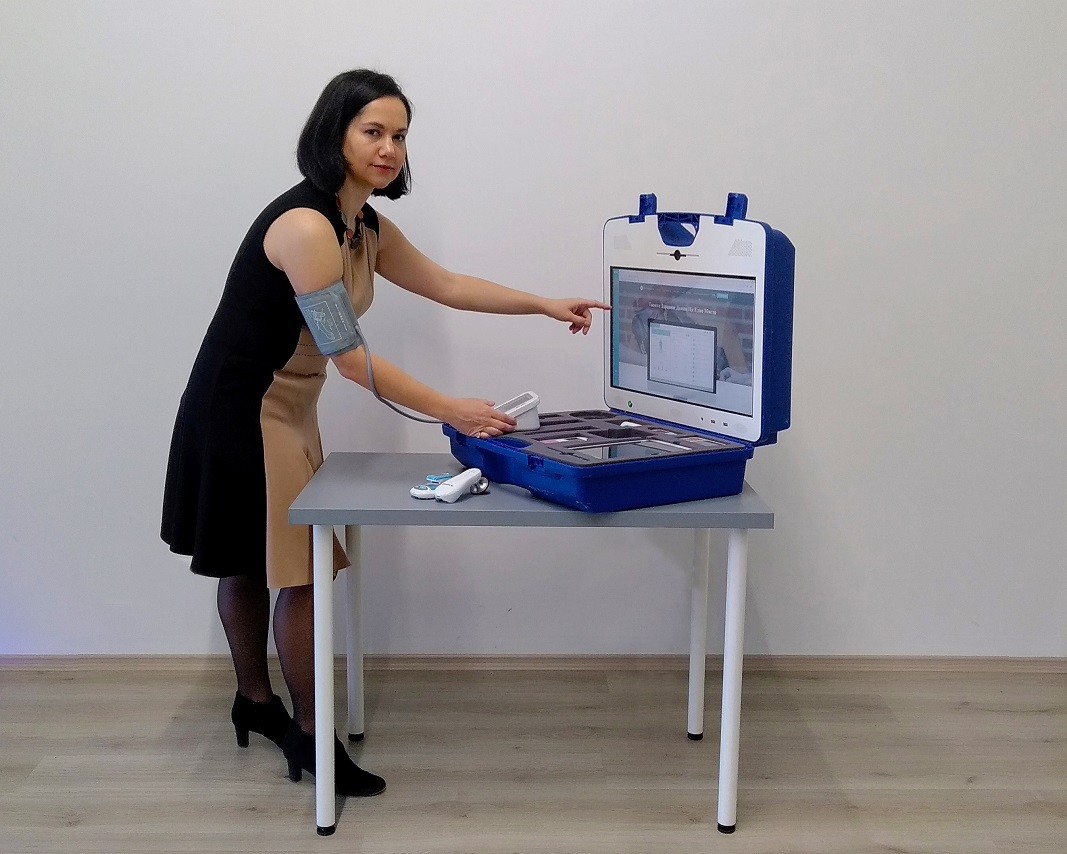The Bulgarian market is increasingly opening up to the potential of online diagnostics, health status tracking and treatment. For this reason, remote access to health care, called telemedicine, is becoming a go-to decision in the days of a global pandemic.
The technologies in aid of medicine are especially needed in times of crisis when the space between healthcare professionals and patients is becoming uncrossable. This instrument is providing access to a substantial number of experts from around the world, saving time and money.
“Telemedicine can be applied on many levels,” says Krasimira Maslarova, a marketing director in a company that is currently trying to implement telemedicine into the Bulgarian market.
“People can get consultations with an expert from home without delay, while patients with chronic diseases can keep constant communication with their doctor. Also, any alterations of blood sugar level can be traced, drugs can be adjusted, and reminders for any needed new testing can be sent - all things, which, without a constant exchange of information, can be skipped and lead to adverse consequences. Telemedicine turns out to be beneficial for people with mobility difficulties and in such times of epidemics it prevents patients from getting infected in the waiting room.”
 The Bulgarian company has developed a so-called telemedicine station - an autonomous mobile system for video communication with remote places where technological connectivity is absent. “It allows not only for connection with healthcare professionals from the patients’ homes but also for interhospital communication between experts,” explains Krasimira Maslarova.
The Bulgarian company has developed a so-called telemedicine station - an autonomous mobile system for video communication with remote places where technological connectivity is absent. “It allows not only for connection with healthcare professionals from the patients’ homes but also for interhospital communication between experts,” explains Krasimira Maslarova.
 “The diagnostics-in-a-suitcase Medcase is a portable basic set of medical diagnostics tools - a stethoscope, a Doppler ultrasound tool, a blood pressure monitor and an electrocardiogram (ECG) device,” she adds. “With this diagnostic suitcase in hand, medical professionals from all around the world can carry out real-time video communication and data sharing, which is automatically saved in the patient’s personal medical record.”
“The diagnostics-in-a-suitcase Medcase is a portable basic set of medical diagnostics tools - a stethoscope, a Doppler ultrasound tool, a blood pressure monitor and an electrocardiogram (ECG) device,” she adds. “With this diagnostic suitcase in hand, medical professionals from all around the world can carry out real-time video communication and data sharing, which is automatically saved in the patient’s personal medical record.”
In addition, a specialized online consultation platform has been developed. It provides for communication with an expert and a remote examination by a specialist on duty. Everybody can create their own personal health record in a specialized site /lzd.bg/ as an alternative to the paper files stored at home.
“We adhere to the requirements of the General Data Protection Regulation (EU),” Krasimira Maslarova explains. “What is so specific about these health records is that they are owned by patients themselves, i.e. they decide whether the information can be saved and with whom to share it. For instance, patients can save the indexes of their blood pressure and sugar, the types of medication taken, and what kind of examinations and treatments have been done.”

According to the developers of the telemedicine technology, its practical applications “can alleviate the immense pressure on the healthcare system, since they can limit expenses and decrease the volume of corruption.” Yet, while the technological development in Bulgaria is on a good level, when it comes to state regulations, nothing has been done and currently, no laws on telemedicine exist.
“There is still much to be done for the possibilities of telemedicine to be spread among the people. Some European countries have already regulated healthcare packages based on telemedicine, which opens the door to the implementation of new technologies and the respective advantages. As a starting point, Bulgaria can begin with the decision to make secondary examinations remote. This will relieve many health professionals and patients and ensure a better treatment tracking,” Krasimira Maslarova believes.
English version Boris Totchev
Photos: Facebook / Naicoms and personal archive
"Folklore is a need for humans and this need will not disappear just like that, " says Assoc. Prof. Dr. Natalia Rashkova - ethnologist and folklorist, university lecturer and researcher with a strong contribution to the study of..
Researchers from Bulgaria and abroad are gathering in Sofia for a scientific conference. The forum will be held on October 16 and 17 in the building of the Institute of Ethnology and Folklore Studies with Ethnographic Museum at the..
The Sofia Zoo has a new resident – an 11-year-old male snow leopard, BNT has reported. He comes from Nordens Ark Zoo, located in Bohuslän, Sweden and is named Araatan. Some time ago, a female leopard arrived from the Helsinki Zoo,..
Nearly two centuries ago, in the distant 1838, the Bessarabian Archbishop Dmitry Kishinev and Khotinsky consecrated the magnificent Orthodox church "The..
Bringing youthful energy, colour and cheer to the Bulgarian National Radio studio, students from the Bulgarian Sunday School Dr Petar Beron arrived..
At the outset of the war between Russia and Ukraine, the Bessarabian Bulgarians across all lands marked their national day with prayers for peace. Nearly..

+359 2 9336 661
